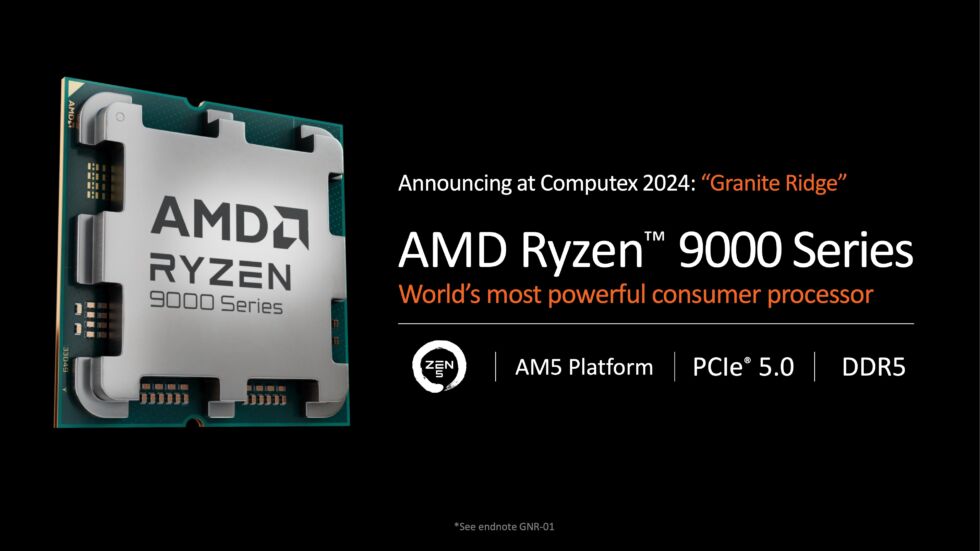AMD is announcing Ryzen 9000 and Zen 5, the second CPU architecture for its AM5 platform. [credit:
AMD ]
It’s been almost two years since AMD introduced its Ryzen 7000 series desktop CPUs and the Zen 4 CPU architecture. Today, AMD is announcing the first concrete details about their successors. The Ryzen 9000 CPUs begin shipping in July.
At a high level, the Ryzen 9000 series and Zen 5 architecture offer mostly incremental improvements over Ryzen 7000 (Ryzen 8000 on the desktop is used exclusively for Zen 4-based G-series CPUs with more powerful integrated GPUs). AMD says that Zen 5 is roughly 16 percent faster than Zen 4 at the same clock speeds, depending on the workload—certainly not nothing, and there are some workloads that perform much better. But that number is far short of the 29 percent jump between Zen 3 and Zen 4.
AMD and Intel have both compensated for mild single-core performance improvements in the past by adding more cores, but Ryzen 9000 doesn’t do that. From the 9600X to the 9950X, the chips offer between 6 and 16 full-size Zen 5 cores, the same as every desktop lineup since Zen 2 and the Ryzen 3000 series. De-lidded shots of the processors indicate that they’re still using a total of two or three separate chiplets: one or two CPU chiplets with up to 8 cores each, and a separate I/O die to handle connectivity.
Read 7 remaining paragraphs | Comments

